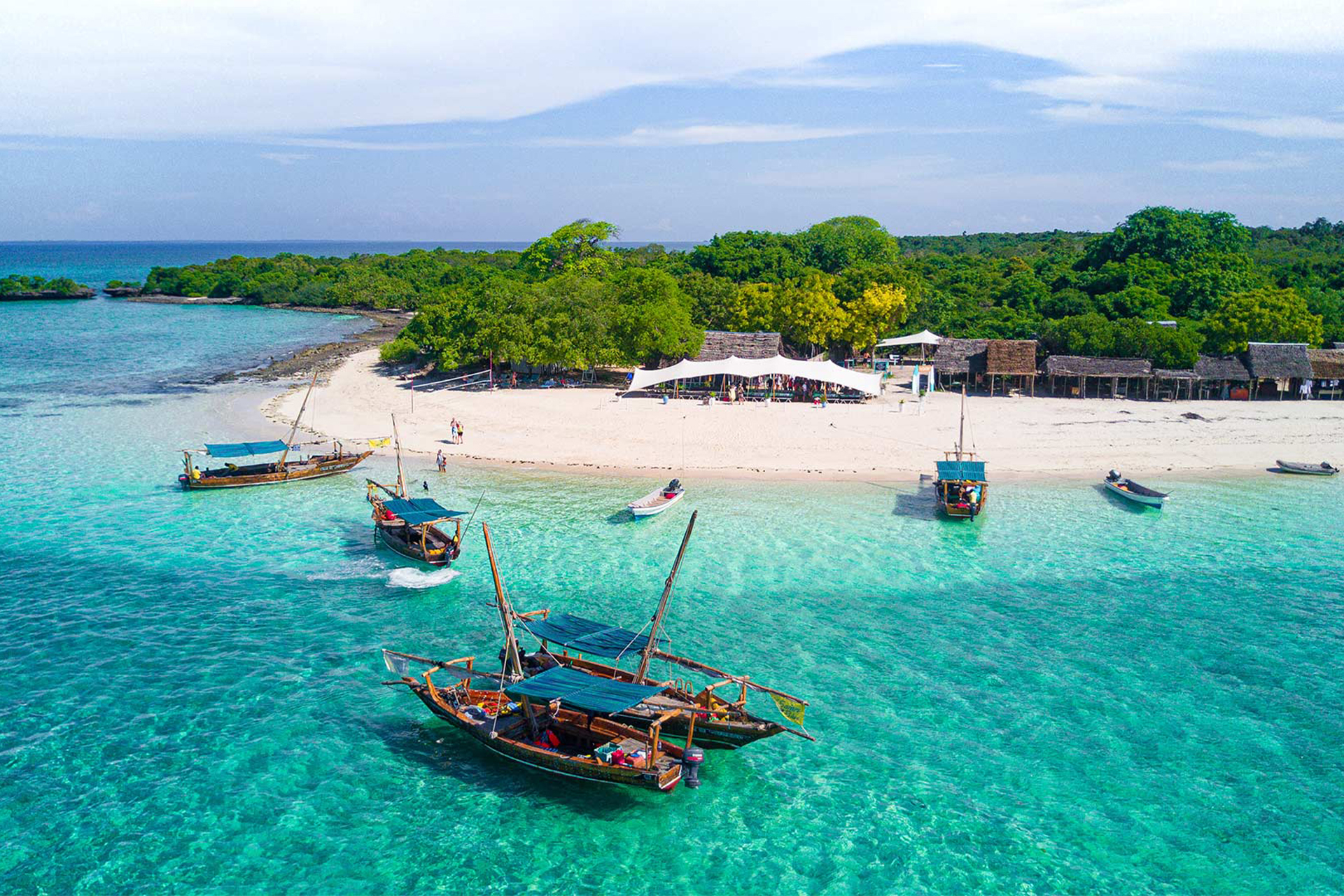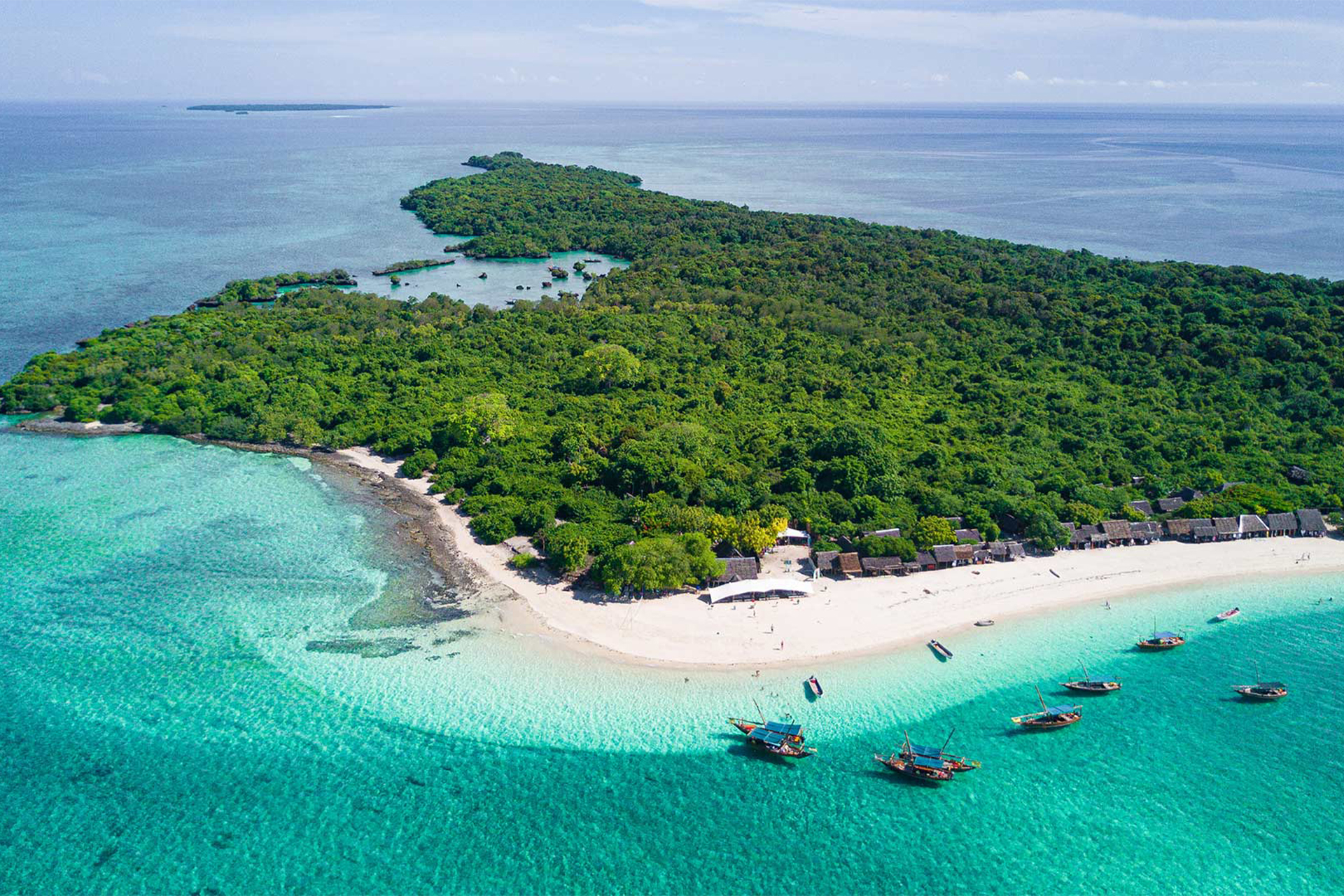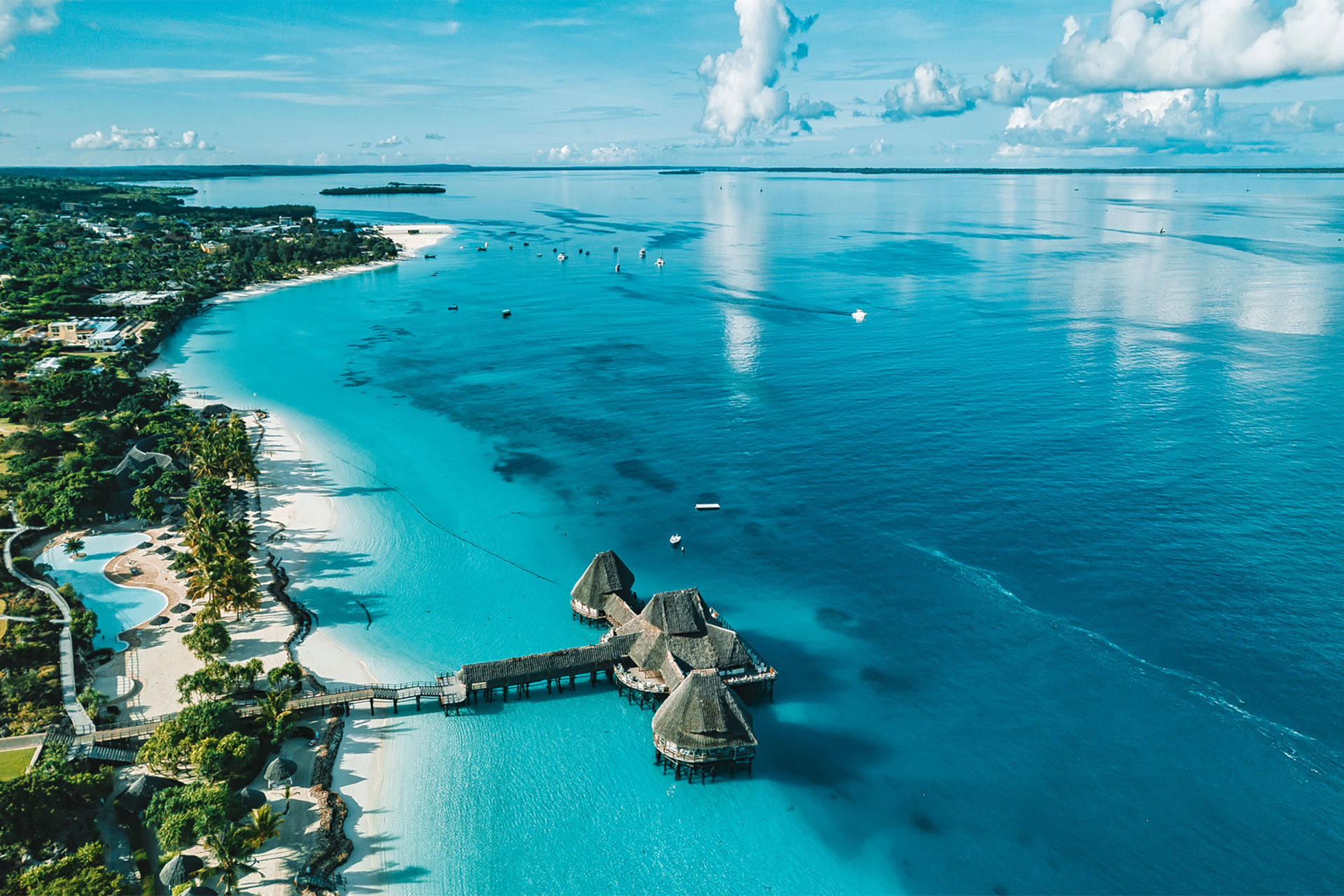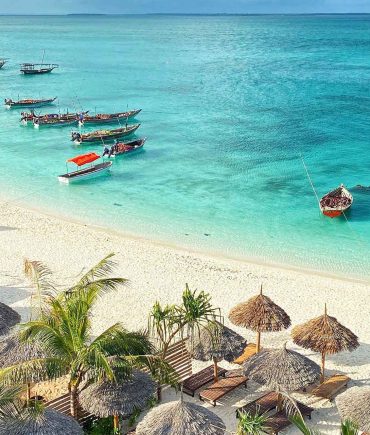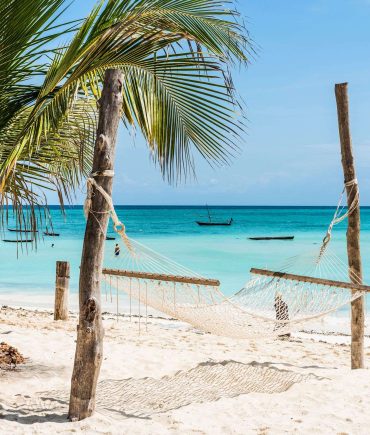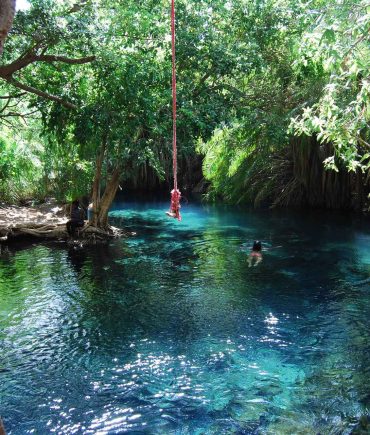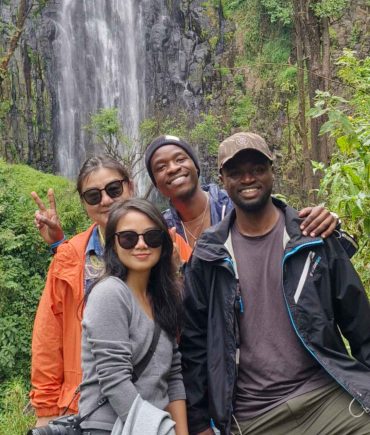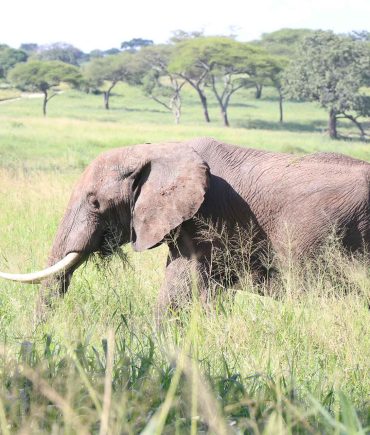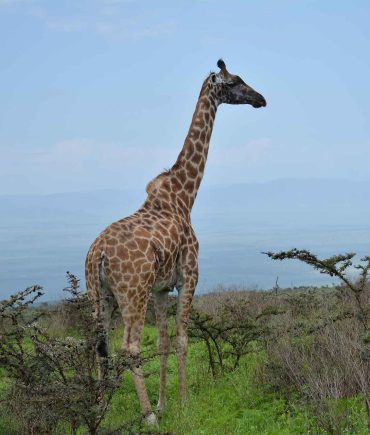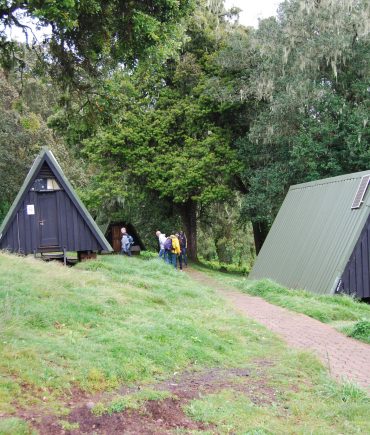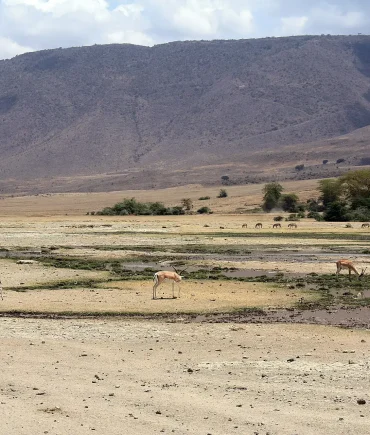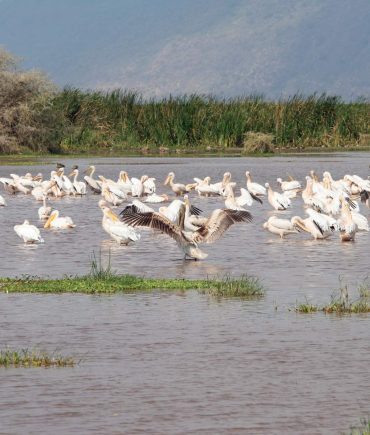Tour overview
Welcome to mesmerizing Zanzibar, the perfect location to relax and enjoy the ‘downtime’ you deserve. With three nights on the exotic Spice Island, our Zanzibar Beach Holiday gives you plenty of time near the sparkling beach and gorgeous Indian Ocean… Enjoy the warm lapping of the waves, as the beautiful clear waters of the Indian Ocean meet the perfect white sands of Zanzibar. Enjoy your own piece of paradise!
Itinerary Details
Every day of our itinerary has been meticulously crafted to ensure you have an unforgettable experience. From discovering iconic landmarks to savoring delectable local dishes, each day promises adventure and thrill. Come along with us as we guide you through a journey across some of the most captivating destinations on the planet.
On arrival at Zanzibar’s Abeid Amani Karume International Airport, you will be met by our driver who will take you on the transfer to your Zanzibar beach hotel. You have the evening at leisure and your dinner tonight will be provided by your hotel.
Accommodation: Zuri Zanzibar
Meal Plan: Dinner tonight will be served at your beach hotel.
After breakfast at your hotel, kick back and enjoy a day at leisure at your oceanside hotel. You can cool off in the hotel pool or in the nearby ocean – the choice is yours. Your hotel will also provide you with both lunch and dinner today, so this really is a day when you can take it easy. Accommodation: Zuri Zanzibar Meal plan: Breakfast, lunch and dinner today will all be served at your beach hotel.
Breakfast is once again provided at leisure by your beach hotel. After that, feel free to enjoy another full day of relaxation by the Indian Ocean: a bit of sunbathing, perhaps or something a bit more energetic such as snorkeling or swimming. Ask at the hotel reception, to see what activities are available. As you are on a full board basis, once again you will take both lunch and dinner today at your hotel. Accommodation: Zuri Zanzibar Meal plan: Breakfast, lunch and dinner today will all be served at your beach hotel.
This morning you will enjoy breakfast at your hotel, before meeting our expert local guide for a tour of fascinating Stone Town, a UNESCO World Heritage site. Over the centuries, many cultures have left their impressions on Zanzibar and it is perhaps in Stone Town where you can most easily see their influences. Your guide will lead you first to the colourful market, awash with exotic smells and buzzing with bartering locals. Afterwards, you will visit the calm of the 19th C cathedral, built on the former site of the slave market after the 1873 abolition of slavery. As you wander the narrow streets and alleys, you’ll pass the Arab houses with their inner courtyards, hidden behind heavy doors. You can compare their style with the Indian residences, adorned with balustrades and metal railings. Amongst the town’s historic sites are the ‘Tip Tip House,’ the Old Fort and the People’s Palace Museum. Lunch will be taken at the Silk Route Indian rooftop restaurant, with views to the ocean. The Silk Route is full of character, so enjoy the excellent cuisine, perhaps washing it down with a cocktail. Afterwards, we will transfer you safely back to the airport for your flight. Meal Plan: Breakfast today will be served at your beach hotel, while lunch is at the Silk Route Indian restaurant in Stone Town. (Note that the Silk Route is a rooftop restaurant, with access being by a lengthy staircase.)
Includes & Excludes
Airport transfers
Hotels as per day wise
Meals (Breakfast, Lunch & Dinner)
Transportations
Waters
All Entrance Fees
Snorkeling Equipment
International or Local Flights
Optional activities
Alcoholic and soft drinks
Visa fees
Tips and gratuities to driver/Safari guide (20usd/day – recommended)
Personal spending money for souvenirs etc.
Travel insurance
Top Experiences
Frequently Asked Question
The best time to go on a safari in Tanzania largely depends on what you want to see. Generally, the dry season from late June to October is ideal for wildlife viewing. During this period, animals congregate around water sources, making them easier to spot. Additionally, the Great Migration in the Serengeti, where millions of wildebeest and zebras move in search of greener pastures, peaks around June and July for river crossings and from late January to February for the calving season.
Tanzania is home to some of the most renowned national parks and reserves in Africa. The Serengeti National Park is famous for the Great Migration and abundant wildlife. Ngorongoro Crater is a UNESCO World Heritage Site and offers an incredible concentration of wildlife in a stunning volcanic caldera. Tarangire National Park is known for its large elephant herds and baobab trees, while Lake Manyara National Park is famous for its tree-climbing lions and diverse birdlife. The Selous Game Reserve and Ruaha National Park in the south offer more remote and less crowded safari experiences.
Tanzania offers a variety of safari experiences to suit different interests and budgets. Classic game drives are the most common and allow you to see wildlife from the comfort of a 4x4 vehicle. Walking safaris provide a more intimate experience, allowing you to explore the bush on foot with a knowledgeable guide. Hot air balloon safaris in the Serengeti offer a unique perspective of the landscape and wildlife from above. Night safaris, available in certain parks, give you the chance to spot nocturnal animals. Additionally, cultural safaris can be arranged to visit local tribes and learn about their way of life.
Packing for a safari requires careful consideration to ensure comfort and practicality. Essential items include light, breathable clothing in neutral colors to blend in with the environment and avoid attracting insects. A wide-brimmed hat, sunglasses, and sunscreen are crucial for protection from the sun. Sturdy, comfortable walking shoes or boots are recommended for walking safaris. Binoculars and a good camera are essential for wildlife viewing and photography. Additionally, bring insect repellent, a first aid kit, any necessary medications, and a reusable water bottle. Layered clothing is advisable as temperatures can vary greatly from morning to evening.
Yes, certain vaccinations and medications are recommended before traveling to Tanzania. It's advisable to consult with a travel health specialist or your doctor well in advance of your trip. Common vaccinations include those for hepatitis A and B, typhoid, and yellow fever (particularly if coming from or transiting through a yellow fever endemic area). Malaria is prevalent in many parts of Tanzania, so taking antimalarial medication is highly recommended. Additionally, ensure you are up to date with routine vaccinations such as MMR (measles, mumps, rubella), DPT (diphtheria, pertussis, tetanus), and polio.
Tanzania is generally considered safe for tourists, and the safari industry is well-regulated with experienced guides and operators. However, as with any travel, it's important to exercise common sense and take precautions. Always follow the instructions of your guide, particularly when it comes to wildlife viewing and safety. Be aware of your surroundings and secure your belongings. In terms of health, it's important to take preventive measures against malaria and stay hydrated. It's also advisable to check travel advisories and register with your embassy before traveling.
A typical day on safari in Tanzania often starts early, around sunrise, to take advantage of the cooler temperatures and increased animal activity. After a light breakfast, you'll embark on a morning game drive, returning to camp for brunch or lunch. The midday hours are usually spent relaxing at the lodge or camp, as wildlife activity slows down in the heat. In the late afternoon, you'll head out for another game drive, returning by sunset. Dinner is typically enjoyed at the camp, followed by time to unwind and share stories of the day. Some lodges also offer evening activities such as stargazing or cultural performances.
Yes, many lodges and tour operators in Tanzania cater to families and offer child-friendly safari experiences. However, it's important to choose the right itinerary and accommodations to ensure a safe and enjoyable trip for everyone. Some lodges have age restrictions for certain activities, such as walking safaris, but they often provide alternative activities for younger children. Family tents, educational programs, and specialized guides can enhance the experience for kids. It's also essential to consider health precautions, such as malaria prevention, and ensure that your children are comfortable with the travel arrangements.
The cost of a safari in Tanzania can vary widely depending on factors such as the length of the safari, the type of accommodations, the level of luxury, and the time of year. Budget safaris, which often involve camping or staying in basic lodges, can start at around $200-$300 per person per day. Mid-range safaris, with more comfortable lodges and additional amenities, typically range from $400-$700 per person per day. Luxury safaris, offering high-end lodges, private guides, and additional services, can cost upwards of $1,000 per person per day. These costs usually include accommodation, meals, park fees, and game drives, but may not cover international flights, visas, or personal expenses.
Most international travelers fly into Kilimanjaro International Airport (JRO) near Arusha, or Julius Nyerere International Airport (DAR) in Dar es Salaam. Arusha is the gateway to the northern safari circuit, including the Serengeti and Ngorongoro Crater, while Dar es Salaam is the entry point for southern parks like Selous and Ruaha. From these airports, you can take domestic flights or arrange ground transportation to your safari destination. Some safari packages include internal flights to save travel time.
Tanzania is home to an incredible diversity of wildlife. You can expect to see the "Big Five" (lion, leopard, elephant, buffalo, and rhino) in many of the parks, particularly the Serengeti and Ngorongoro Crater. Other common sightings include cheetahs, giraffes, zebras, wildebeest, hippos, crocodiles, and a variety of antelopes. Birdwatchers will also be delighted with over 1,000 bird species, including flamingos, eagles, and hornbills.
Absolutely! Tanzania offers a wealth of activities beyond safaris. You can combine your safari with a visit to Zanzibar for stunning beaches, diving, and cultural experiences. Climbing Mount Kilimanjaro, the highest peak in Africa, is another popular option. Cultural tours to visit local tribes, such as the Maasai, and explore their traditions and way of life can add depth to your trip. Additionally, activities like hiking in the Usambara Mountains or exploring the historical sites of Stone Town in Zanzibar provide diverse experiences.
Book This Tour
Verified Honeymoon in Tanzania We were lucky to have Daniel as our guide in Tanzania. He made us feel safe, went above and beyond every day, and genuinely cares about Tanzania and conservation. He also booked the best experiences using excellent local guides. By the end of the trip, he felt like a true friend, and our experience was far more than just a tour. I look forward to our next meeting!Verified Kilimanjaro 7 Days via Lemosho – Unforgettable Christmas Summit I did a solo trek up Kilimanjaro via the 7-day Lemosho route, and summiting on Christmas Day was absolutely magical! The entire experience with Hilltop Travel was smooth, professional, and filled with great energy.A huge thank you to James, my incredible guide, who supported me every step of the way — especially during the challenging summit night. The entire crew was superb, friendly, and highly experienced. I was also impressed by the delicious food served throughout the climb — it really kept my energy up!The scenery was stunning, the service exceptional, and though the summit was tough, it was 100% worth it. Highly recommend Hilltop Travel to anyone dreaming of standing on the Roof of Africa!Verified Chagga Cultural Experience in Nkweshoo – A Hidden Gem Near Kilimanjaro! My cultural visit to Nkweshoo in Machame was absolutely unforgettable! Exploring the traditions of the Chagga people with the local Chagga women made the experience deeply authentic and heartwarming. We joined a farm tour, learned how to make traditional Chagga coffee from bean to cup, and visited a stunning nearby waterfall. Spending a night in a traditional Chagga boma, simple, peaceful, and incredibly special. The hospitality, the stories, and the genuine connection with the community made this more than just a tour — it was a journey into a rich culture. Highly recommended for anyone visiting Kilimanjaro and looking for something real, local, and inspiring.Verified Perfect 3-Day Safari Experience with Hilltop Travel! I just returned from an unforgettable 3-day safari covering Tarangire National Park, Ngorongoro Crater, and Lake Manyara — and it was absolutely amazing!From start to finish, everything was well-organized, comfortable, and full of incredible wildlife moments. Tarangire’s baobab trees and herds of elephants were stunning, Ngorongoro was magical with breathtaking views and the Big Five, and Lake Manyara surprised us with flamingos, tree-climbing lions, and so much more.Special thanks to my guide Thomas, who made the trip extra special. He was incredibly knowledgeable, professional, and had a great sense of humor. His deep understanding of wildlife and Tanzanian culture made every moment educational and fun. I always felt safe and well taken care of.This was more than just a safari — it was an experience of a lifetime. Thank you Hilltop Travel and thank you Thomas! Highly recommended for anyone looking for a real taste of Tanzania’s natural beauty and warm hospitality.Verified Increadible Tanzania Safari and Beach Combo We booked a safari and beach package with Hilltop Travel, and it turned out to be the best travel decision I’ve made. The safari lasted five days, covering Serengeti, Ngorongoro, and Tarangire. Every day brought something new — we saw lions hunting, giraffes moving gracefully through the trees, and elephants with babies just a few meters from our vehicle. Our guide was a walking encyclopedia, always ready to explain behaviors or share fun stories about the animals.After so much adventure, we flew to Zanzibar for three nights. The transition was seamless; Hilltop travel team arranged the flight and transfers so we didn’t have to think about a thing. Our hotel in Stone Town gave us a taste of local culture, while the beach resort in Kendwa was all about relaxation. Swimming in waters after seeing lions and rhinos just days earlier was almost surreal.This mix of safari and beach felt like two vacations in one. Hilltop team understood exactly what we wanted — adventure, then relaxation. I’ll always remember it as a perfectly balanced trip.Verified Amazing Mount Kilimanjaro Trip – November 2025 I climbed Mt. Kilimanjaro via the Marangu Route in early November with Hilltop Travel, and it was truly an unforgettable experience. Everything was well-organized from start to finish. The team was efficient, helpful, and full of positive energy — they made reaching the summit possible and enjoyable.A special thanks to Daniel at the office, who was always available, very knowledgeable, and made the planning smooth. I want to sincerely congratulate the entire Hilltop team — they’re simply the best. My journey was filled with happiness, and I’ll always be grateful. Highly recommended!Verified Cultural Visit in a Maasai Village One of the most memorable parts of my trip was visiting a Maasai village close to Kilimanjaro airport arranged by Hilltop Travel. Our guide introduced us to the community, and we were welcomed with songs and dances. It didn’t feel staged — instead, it felt like a genuine sharing of their culture.We learned about traditional Maasai life, from how they build their homes to the way they care for their cattle. A Maasai elder explained their customs, while children laughed and played nearby. I was even invited to try a short dance, which had everyone smiling.It gave me a deeper appreciation of Tanzania beyond the wildlife. Hilltop travel made sure it was respectful and meaningful, and it turned out to be one of the highlights of my entire journey.Verified Magical Day at Ngorongoro Crater! Our day trip to Ngorongoro Crater was simply unforgettable! I had such an amazing time with friends — full of fun, laughter, and incredible wildlife sightings. We spotted elephants, hippos, antelopes, lions, gazelles, and so much more! The crater’s landscape is beyond words — like a hidden world full of life and beauty. I honestly can’t wait to come back and share this magical place with more friends. If you're thinking of a day in nature filled with excitement and wonder, Ngorongoro is the place! Highly recommend this experience to anyone visiting Tanzania.Verified Safe and Comfortable Trip in Tanzania I’m not the most adventurous traveler, so safety and comfort were important to me. Hilltop travel team exceeded my expectations in both. The vehicle was spotless, with seatbelts and large windows. Our driver was careful on both highways and bumpy tracks especialy in Serengeti, which made me feel secure the whole time.Little touches stood out: cool water always available, blankets for chilly mornings, and even charging points for cameras. At the lodges, everything was clean and welcoming, and the staff treated us with kindness.Because of this, I was able to relax and fully enjoy the safari. I didn’t spend time worrying about logistics or safety. Instead, I could just focus on the incredible sights — elephants walking by, zebras grazing, and lions resting in the sun. Hilltop travel gave me peace of mind, which made the trip even more enjoyable.Verified Unforgettable Day at Materuni and Chemka – A True Tanzanian Experience Our full-day adventure with Hilltop Travel was simply amazing from start to finish! We began in Materuni Village, where we experienced the full coffee journey — from bean to cup.Our local guide, Ally shared beautiful stories about Chagga culture and the traditional way of coffee processing. Picking, roasting, grinding, and finally sipping our own fresh brew was something truly special!The hike to Materuni Waterfall was refreshing and scenic, made even better by our photographic guide whose talent with photos and videos added magic to the whole day. Every moment was perfectly captured!After enjoying delicious local Chagga food, we headed to the Chemka Hot Springs, where swimming in the clear, natural spring pool was the perfect way to relax. The water was warm, clean, and surrounded by nature, a hidden gem!This was a day full of culture, nature, taste, and relaxation. Huge thanks to the Hilltop Travel team for organizing such a flawless experience. Highly recommended to anyone visiting Tanzania!
Excursions for Inspiration
Experience the awe-inspiring majesty of wildlife, the surreal beauty of natural wonders, captivating beaches, and Hiking on Mount KIlimanjaro with each unique Hilltop Travel. Not sure where to begin your journey? Whether it’s an adventure of a lifetime, a milestone celebration, or a well-deserved getaway, find joy in our curated collection of top destinations.


